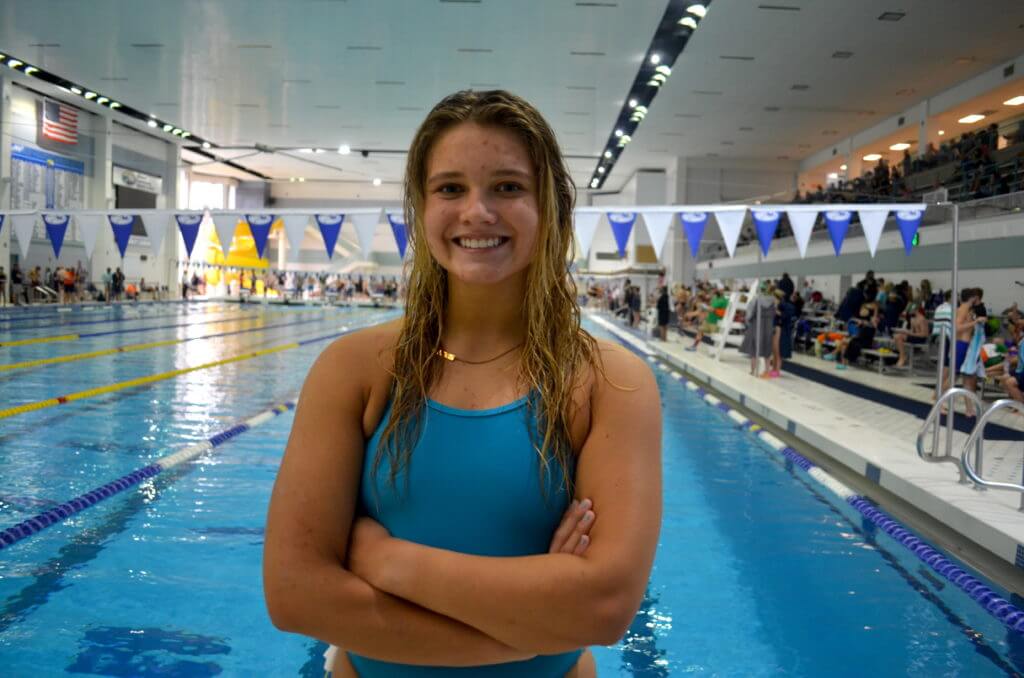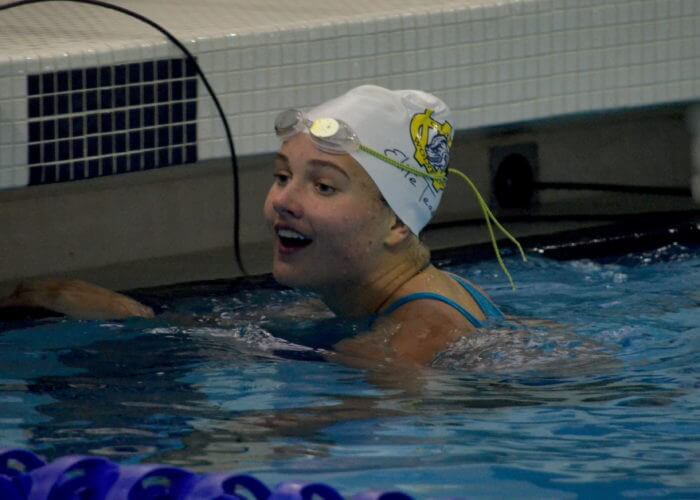Michigan’s Claire Tuttle Uses Ian Miskelley Memorial Open to Reinforce Need For Mental Health Awareness

Claire Tuttle never got to meet Ian Miskelley, but swimming in the Ian Miskelley Memorial Open this weekend made her realize how much she had in common with him.
For starters, both are from West Michigan. They both chose the University of Michigan. But the biggest parallel is they both have suffered from anxiety and depression.
Those mental health issues led to Miskelley taking his own life in September.
Tuttle wants to make sure his story — and her story — can help others dealing with similar issues.
“I never got the chance to meet him, but I definitely saw him around the pool deck at a lot of meets because I grew up in the same area,” Claire Tuttle told Swimming World at the Ian Miskelley Memorial Open in Holland, Michigan. “I definitely heard about his impact on the Michigan team. It is sad and I wish I would have gotten to know him. Knowing what he went through, I think he could have helped me in a lot of ways.”
It is something Miskelley’s club coach, Jim Whitehead at Michigan Lakeshore Aquatics, is seeing as part of Miskelley’s legacy. People are starting to recognize mental health issues and talk about them.
“We are finding out the more aware we are, the more we are finding the issues on our own club and in the area. That has to be nothing but a positive. With our awareness we are starting to identify things,” Whitehead said. “We are putting together a foundation where they can have urgent care. It is terrific.”
Miskelley’s parents started a non-profit in Ian’s honor called “Be Better.”
It is something Tuttle is trying to do — and help others do as well.

Photo Courtesy: Dan D’Addona
Tuttle, a breaststroke state champion at Hudsonville High School, said her struggles grew as she left home for college.
“It was going to college. I never really had many people who went away for college that I could talk to. Nothing can really prepare you for college sports or going somewhere like Michigan. Being away from my family and friends was extremely hard,” she said. “I felt like I lost a piece of myself along the way and I am making those kind of friends.”
The uncertainty of the COVID-19 pandemic didn’t help.
“The pandemic definitely added an extra layer for me. Everyone was feeling a little more anxious and on edge. It was hard. We are almost through it hopefully. Having a year off has been difficult. Michigan swimming has been an extreme challenge mentally and physically. I feel like I am starting to grasp things and get the hang of it, it just took a few months. I am getting there,” Tuttle said. “It is a great bubble of people and I feel supported. They gave me so many more opportunities than I ever knew I had. I definitely wish I was doing better but the challenges of being in and out and in and out of the water has made me proud of where I am. You can’t be upset if you aren’t swimming the way you want because it has been such a different year.
“You have to be happy with what you can get.”
Tuttle realized that what she can get is a grounded outlook on her own situation, which can help others, along the way.
“It is surprising how much more common anxiety is, especially in athletes,” Claire Tuttle said. “ It is just insane that it is not talked about more. I know so many athletes that are on anti-depression medicine and anti-anxiety meds — I’m on both. It is so much more common and I feel like it needs to be addressed more to help people get in a better mindset so they don’t do regrettable things.”



